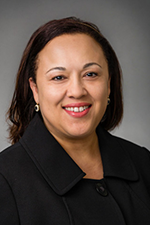March 14, 2017
RUPRI: Rural Arts and Culture
Part of the joy of working at NASAA is the opportunity to seek and develop new partnerships with the potential to positively and productively impact the work of state arts agencies (SAAs), and, by extension, communities across the country. To this end, I’m pleased to introduce you to RUPRI, the Rural Policy Research Institute. It’s the only U.S. national policy institute dedicated solely to the rural impact of public policies and programs. Since its founding in 1990, 100 universities, all U.S. states and 30 other nations have participated in its work. Some SAAs are already familiar with RUPRI; in fact, our colleague and NASAA board member Matt Harris (administrator of the Iowa Arts Council) served as a 2016 State Regional Network cochair for RUPRI’s Next Generation: The Future of Arts & Culture Placemaking in Rural America initiative.
RUPRI is led by its founder, president and CEO Charles (Chuck) Fluharty, a visionary and dynamic leader; getting to know him and his organization’s work inspires me about the work we can do together. Chuck has authored numerous policy studies and presented dozens of congressional testimonies and briefings. He has provided senior policy consultations to most federal departments, state and local governments, and many organizations. He’s also an all-around great guy!
RUPRI’s vision articulates a transformation our country deserves to experience:
- Rural people and places have the resources and capacities to create strong, viable, meaningful, and sustainable futures that can both withstand and turn to advantage the forces of globalization and economic, demographic and social change.
- Rural and urban people find common cause and understanding about the future role and governance of rural places and the contribution that rural life and culture makes to national identity.
RUPRI’s portfolio of work for 2017 includes three issue areas directly related to arts and culture. Arts and Rural Wealth is an emerging field deserving of research and support for wealth creation strategies. Through its Rural Arts & Culture, Wealth, Innovation and Entrepreneurship effort, RUPRI is interested in the roles arts and culture play in creating social, cultural, human and other capital. These capitals can assuredly transform quality of life for rural residents, and RUPRI cites five direct relationships between the arts and regional wealth:
- economic contribution of the arts to the local economy
- support for the arts
- development of business skills among artists
- development of innovation skills in non-artists
- inspiring a sense of place and community cohesion
Through its Advancing the Measurement and Metrics of Selected Capitals in the Rural Wealth Framework, RUPRI is focused on several types of capital critical to measuring overall rural wealth. Among those capitals is cultural capital, which includes both tangible (artworks, architecture, etc.) and intangible (traditions, etc.) assets associated with the culture of a region.
Notably, RUPRI is codeveloper of the Next Generation Rural Creative Placemaking Theory of Change. Alongside Art of the Rural, RUPRI’s theory of change asserts that the future of rural communities is dependent upon critical quality of life indicators that include arts and culture. It states:
Fortunately, most rural places offer most of the necessary amenities and advantages which myriad surveys show are consistently valued by young people choosing a locale in which to raise their family, absent three: an economy sufficiently vibrant to provide the income necessary; a diverse, dynamic and inclusive culture; and a human ecosystem which offers opportunities for personal expression and active community engagement. These last three indices of rural “quality of life” are equally critical to our urban communities, and drive almost all business site selection / attraction / retention strategies, as well as locale decisions by the entrepreneurial class. In today’s economy, people will move to places, and jobs will follow them, not the reverse. Today, placemaking is absolutely essential to economic resilience.
In support of the Theory of Change, RUPRI cohosted the first National Rural Creative Placemaking Summit last fall in Iowa. Related regional convenings were held in Iowa, Kentucky and Minnesota. With its designation as an NEA National Research Lab, RUPRI will look at the intersection of art, entrepreneurship and innovation within a rural context. Further, it plans to create additional Next Generation working groups in at least two states, as well as begin planning for a second National Rural Creative Placemaking Summit, expected for 2018.
It’s an exciting slate of initiatives! NASAA will keep you informed as these efforts continue to unfold. In the meantime, I encourage you to explore the work of RUPRI, its impressive Theory of Change, and initiatives related to it.
In this Issue
State to State
- Georgia, Mississippi, Ohio, Tennessee: Reaching the Most-Underserved Communities
- New Mexico: Arts & Military Convenings
- Rhode Island: Artists Open Studios Tour Grants
- Delaware: Creative Aging Workshop
Legislative Update
More Notes from NASAA
From the CEO
Research on Demand
SubscribeSubscribe
×
To receive information regarding updates to our newslettter. Please fill out the form below.

